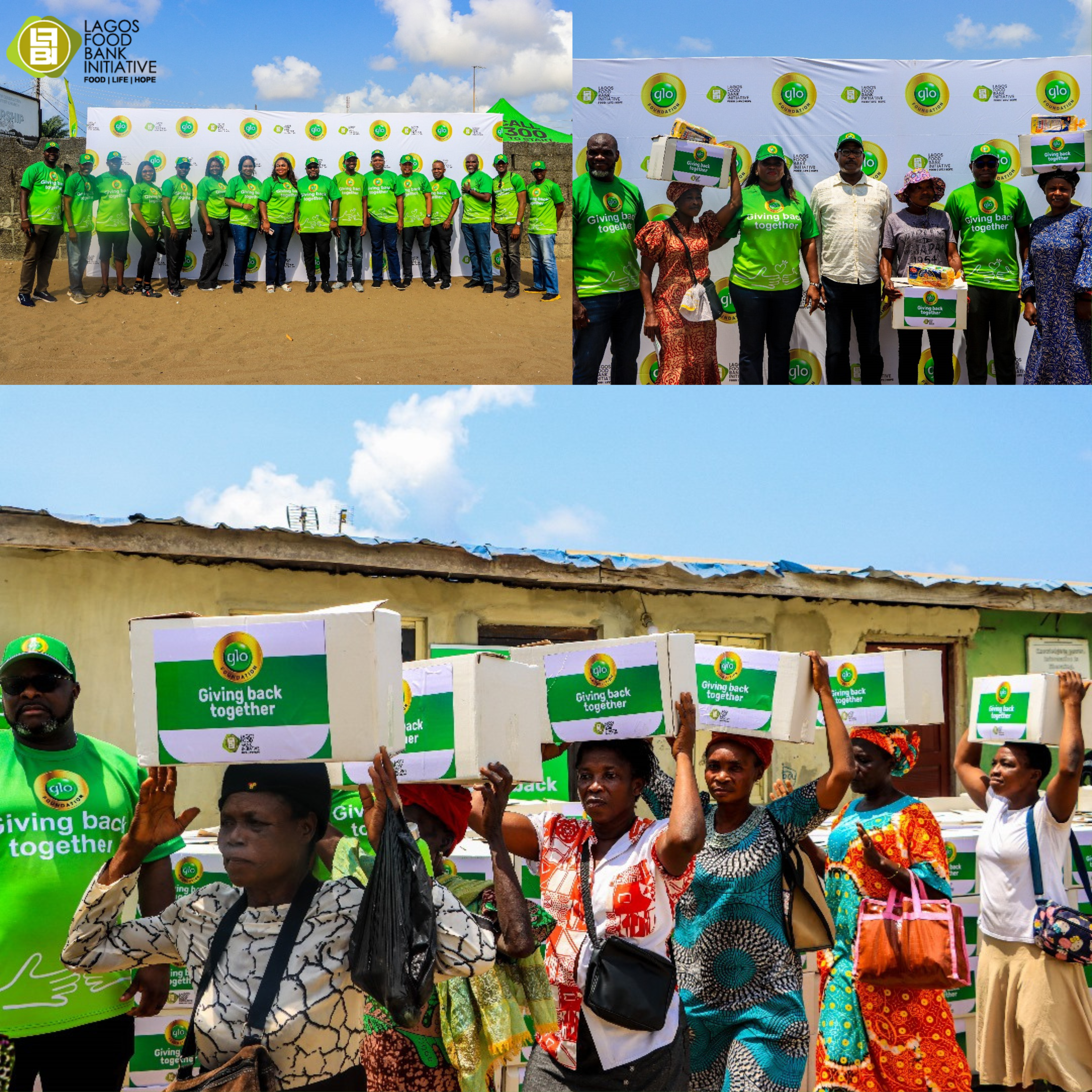On March 29, 2025, the Glo Foundation partnered with Lagos Food Bank Initiative for an empowering outreach event through the Temporary Food Assistance Program (TEFAP) in Ikota-Ajah (Lekki) Community. This initiative was a heartwarming demonstration of community resilience and the collective efforts towards achieving Sustainable Development Goal 2: Zero Hunger by 2030.
The arrival of Lagos Food Bank Initiative and its partner, Glo Foundation, in the host community was met with warm cheers – a sign of sincere appreciation felt throughout the community. Families were gathered at the venue, each household represented by a woman filled with hope and anticipation. The atmosphere was vibrant, charged with laughter and happiness as beneficiaries interacted with one another and with the people from the Glo Foundation, creating a sense of belonging and community.
At the start of the event, the Executive Director of Lagos Food Bank, Dr. Michael Sunbola, took a moment to express gratitude to Glo Foundation for their ongoing commitment to the TEFAP program. He highlighted the significance of the outreach, especially as it followed closely on the heels of a similar event just a week prior in Bariga, Lagos. In a heartfelt speech, the Head of CSR for Glo Foundation, Jumobi Mofe-Damijo, also commended the LFBI team and all volunteers for their unwavering dedication, emphasizing the honor of serving humanity.
The most anticipated part of the event then started, and food packages were distributed to the beneficiaries. The women shared their emotional reactions, with many praising Globacom, Nigeria’s leading telecommunications provider, for its generosity. Some were even seen praying for the company and its representatives—a beautiful testament to the profound impact of such initiatives.
Ultimately, this outreach not only provided immediate relief to families but also fostered a sense of community spirit and resilience. The collaboration between Glo Foundation and Lagos Food Bank serves as a powerful example of how businesses can play a vital role in addressing food insecurity and supporting vulnerable communities.



PrimeBiome
April 14, 2025My brother recommended I might like this web site He was totally right This post actually made my day You cannt imagine just how much time I had spent for this information Thanks